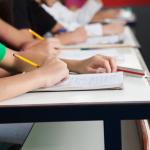As schools across the UAE close for the long summer break, education experts and psychologists are sounding the alarm on an often-overlooked issue: summer learning loss. With students enjoying extended holidays from academic routines, there is a growing concern among educators and parents about how to prevent the decline in learning momentum — especially in reading, math, and cognitive engagement.
Summer learning loss, sometimes referred to as the "summer slide," is the phenomenon where children forget some of what they learned during the school year due to a lack of academic activity. In the UAE, where summer vacations can last up to two months, this issue is particularly relevant for families who may not have structured academic plans in place during the holidays.
What Is Summer Learning Loss?
According to education specialists, children who do not engage in any form of learning during the summer can lose up to two to three months of academic progress. This setback is often most evident when schools reopen, and teachers must spend the initial weeks reviewing previous content before introducing new material.
Studies globally have shown that math and reading skills are the most affected. Younger students in primary grades are particularly vulnerable, but the phenomenon can also impact high school students preparing for board exams or international qualifications.
The UAE Context: Balancing Rest and Enrichment
In the UAE, summer is often seen as a time for travel, relaxation, and family bonding. While this downtime is essential for children's mental and emotional well-being, educators say a complete disconnect from learning could be detrimental.
“Children do need a break, but academic disengagement for several weeks can slow down their cognitive rhythm,” says Reem Al Nuaimi, a Dubai-based educational consultant. “The goal isn't to recreate school at home, but to integrate light, enjoyable learning that keeps the brain active.”
Tips for Parents to Prevent Learning Loss
Experts across the UAE are offering practical, balanced strategies that families can adopt without disrupting holiday routines:
1. Set a Flexible Study Schedule
A structured yet relaxed learning routine — even if it's just 30 minutes a day — can make a significant difference. Allocate time for reading, writing, or problem-solving activities in the morning before other holiday plans begin.
2. Read Together Daily
Reading remains the most effective way to prevent learning decline. Parents can encourage their children to read storybooks, news articles, or even comics. For younger children, read-aloud sessions can build vocabulary and comprehension.
Many libraries and book fairs in Dubai, Abu Dhabi, and Sharjah offer summer reading challenges with rewards to keep children motivated.
3. Use Educational Apps and Platforms
Several UAE schools recommend e-learning tools such as Raz-Kids, IXL, and Khan Academy to help reinforce concepts. Parents can also explore Arabic language platforms to strengthen bilingual reading and writing skills during the break.
4. Explore Learning Through Play
Puzzles, board games, science kits, and DIY projects are excellent tools for hands-on learning. These stimulate curiosity, logic, and creativity — all crucial aspects of holistic education.
5. Enroll in Summer Camps with Academic Focus
Many summer camps in the UAE now offer hybrid programs that blend academic refreshers with fun activities like art, robotics, and sports. Camps offered by knowledge hubs and ed-tech centres in Dubai and Abu Dhabi often include coding, math workshops, and language labs.
6. Include Cultural and Real-World Learning
Family outings to museums, science parks, or cultural sites offer rich educational value. A visit to the Louvre Abu Dhabi or the Sharjah Discovery Centre can spark an interest in history, science, or the arts in a relaxed setting.
Supporting Children’s Emotional and Mental Health
While academic skills are important, educators also emphasize the need to support children's mental and emotional development during the holidays. The pressures of the academic year can be intense, and summer provides a much-needed break.
“Play, sleep, and unstructured time are just as important,” notes Dr. Firas Mahmoud, a child psychologist in Dubai. “Balance is key. Don’t turn summer into another exam period.”
He recommends open conversations with children to understand their interests, fears, and goals for the next academic year. Involving kids in planning their summer routines also builds responsibility and self-discipline.
Bridging the Gap for Special Needs and Learning Differences
Children with learning challenges or special educational needs may be more vulnerable to regression during long breaks. UAE-based inclusive schools and therapy centres offer specialized programs to support continued development in a fun, structured manner during summer.
Online speech therapy, occupational therapy games, and customized academic programs are widely accessible in the UAE’s inclusive education ecosystem.
The Role of Schools and Teachers
Many schools in the UAE are stepping in to bridge the gap by providing optional summer homework packs, e-book access, and virtual learning resources. Some institutions are also offering mid-summer webinars and check-ins to help students transition back more smoothly.
Parents are encouraged to stay connected with their child’s school and teachers to understand which areas might need reinforcement and how best to support continued progress.
Final Thought: Keep Learning Light and Fun
The aim of preventing summer learning loss is not to create a high-pressure academic environment but to encourage a love of learning that continues beyond the classroom. By mixing fun with focused activities, UAE families can ensure that their children return to school refreshed, confident, and ready for the year ahead.
As the UAE continues to prioritize educational excellence, community-wide efforts — from parents and teachers to ed-tech providers and summer camps — can help keep students on track, even while enjoying a well-deserved summer break.










